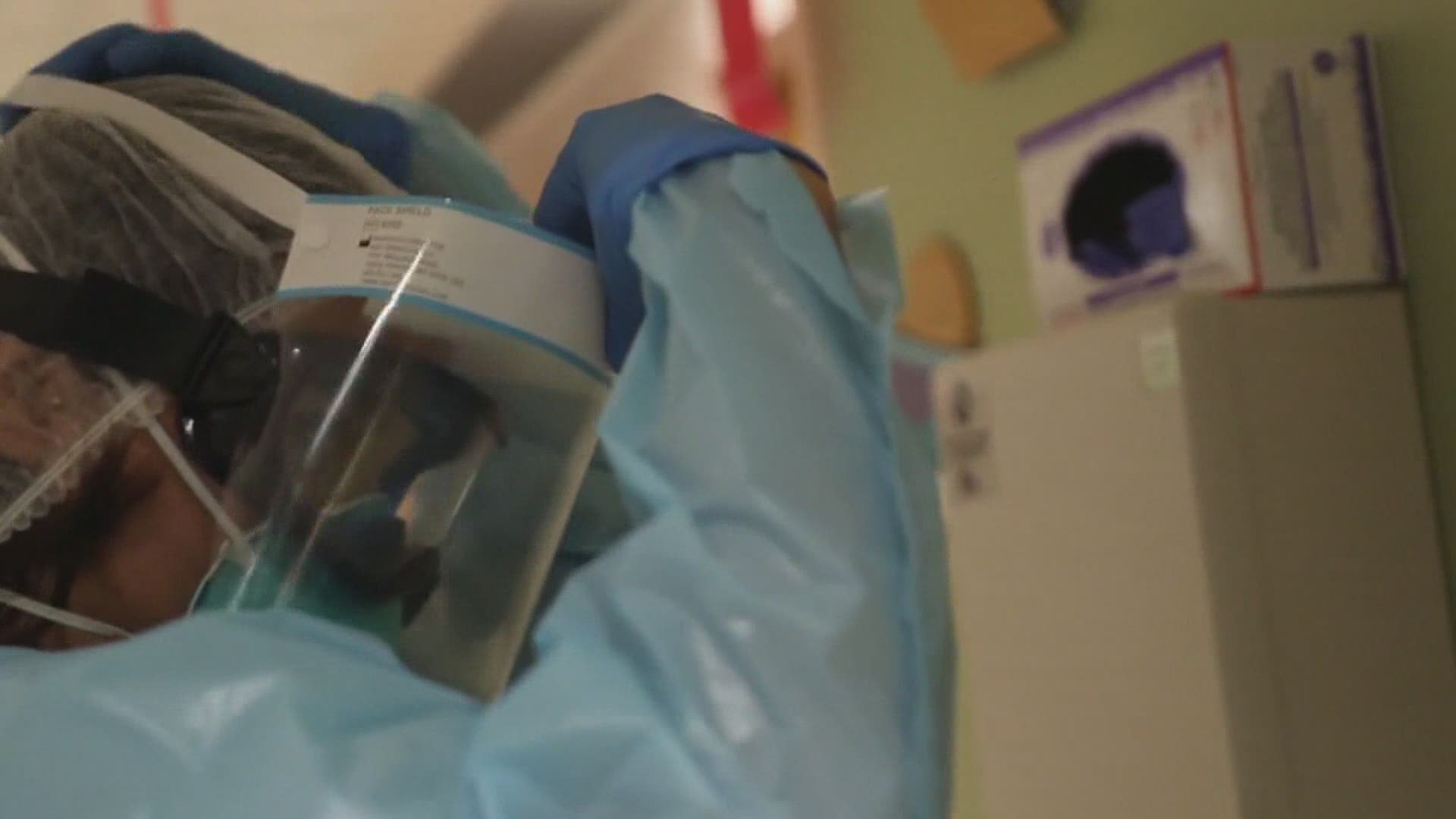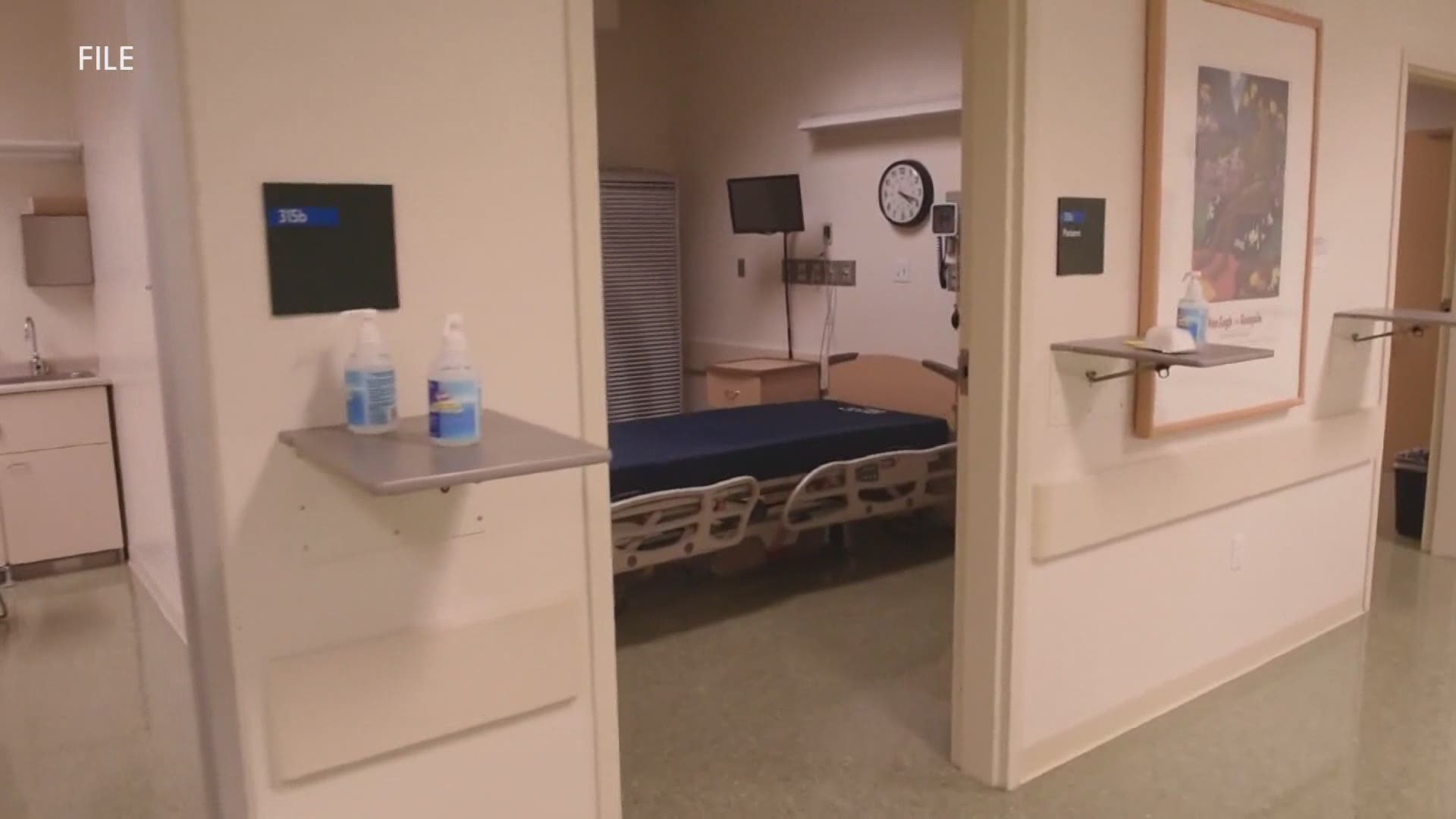Leaders from Michigan health systems announced Thursday that on average coronavirus cases statewide are rising by 40% each week, and hospitalizations are doubling every two weeks.
The current surge is being felt in every region of the state unlike the peak in the spring, which was concentrated on the southeast side of the state and in urban areas. And at this point, healthcare workers have been fighting the virus for much longer.
"We've been in a battle for the last eight months, and when you're in a battle for that long, you lose a bit of energy steam and resiliency," Wright Lassiter III, Henry Ford Health System CEO, during a virtual press conference Thursday.
At Henry Ford, hospitalizations have risen by 128% in the last 14 days. At Spectrum Health, the number of inpatients has tripled in the last 20 days and is more than triple the amount in the spring.
As of Nov. 12, there are 3,071 people hospitalized statewide with the virus, according to the Michigan Health & Hospital Association. Hospitalizations have increased 100% in the last two weeks, making this the largest increase since the onset of the surge in early October.
"Our hospitals are rapidly filling with COVID patients at a very alarming rate," Brian Peters, CEO of Michigan Health & Hospital Association, said during the press conference. "If this continues, in the coming weeks, we will surpass our all time record high in terms of COVID inpatient hospitalization numbers here in the state of Michigan."
Most CEOs on the Thursday call —which also included Beaumont's John Fox, Spectrum Health's Tina Freese Decker, Munson Healthcare's Ed Ness, and UP Health System- Marquette's Gar Atchison— indicated that their concern was staffing.
In the spring, hospitals could lean on assistance from other regions of Michigan or other states, but Lassiter says that likely won't be an option during this surge.
"Effectively today, the entire country is a hotspot," Lassiter said.
"If the case escalation continues on this same pace for significantly longer, you will have every hospital getting to its capacity and having to make decisions about slowing down, and or discontinuing some kinds of basic care for COVID patients."
When asked about the possibility of field hospitals as hospitalizations increase, the healthcare leaders agreed that expanding bed capacity through field hospitals is useless without the staff to fill them.
"Just building a field hospital with 500 mattresses doesn't get you staffed up," Fox said. "And the only way to staff up is to play a very problematic zero sum game of taking staff away from somewhere else."
Freese Decker said while staff are better equipped with PPE during this surge, there is a concern of more staff becoming infected with the virus while in the community.
"We want to make sure we're keeping them healthy as we go through this, because it may not be access to a facility we need it may actually be staffing," Freese Decker said. "That will be the critical resource that we'll be looking for."
None of the hospital executives indicated that a full shutdown would help.
"I think none of us want to go through the shutdown and the brute force and what happened in the spring. I think we don't need to do that," Fox said. "But, I do think that government and frankly all of our communities play a critical role in reinforcing the way that we can control this virus. The virus doesn't move on its own."
Instead, they called on Michigan residents to focus on the basics of hand washing, mask wearing and social distancing.
They said more narrow restrictions could help slow the spread. But, the primary cause for community spread that the group pointed to was small indoor social gatherings of six to 10 people from different households, especially where masks aren't used.
"There is this perception that if I know somebody, and I'm just getting together with those friends. They couldn't possibly have this," said Ness. "Change the mindset of just because you know somebody just because they're friends, doesn't mean that you shouldn't be cautious."
While most all communities are testing more now than in the spring, the turn around times for those tests are slipping, which Freese Decker said she hopes to see change as more supplies are secured.
Contact tracing, she said, also continues to be a crucial tool. However, in the last week many local health departments have said they are overwhelmed in those efforts.
Gerry Anderson, executive chairman at DTE Energy and chair of the Michigan Economic Recovery Council, hosted the virtual press conference and said that contact tracing efforts have also slipped from 80-90% of cases to about 60%.
"So, as the number of cases rises quickly, their ability to do the contact tracing is falling and as these healthcare leaders have said it's vital to control the spread, but it also becomes more difficult," Anderson said.
RELATED VIDEO:
►Make it easy to keep up to date with more stories like this. Download the 13 ON YOUR SIDE app now.
Have a news tip? Email news@13onyourside.com, visit our Facebook page or Twitter. Subscribe to our YouTube channel.


